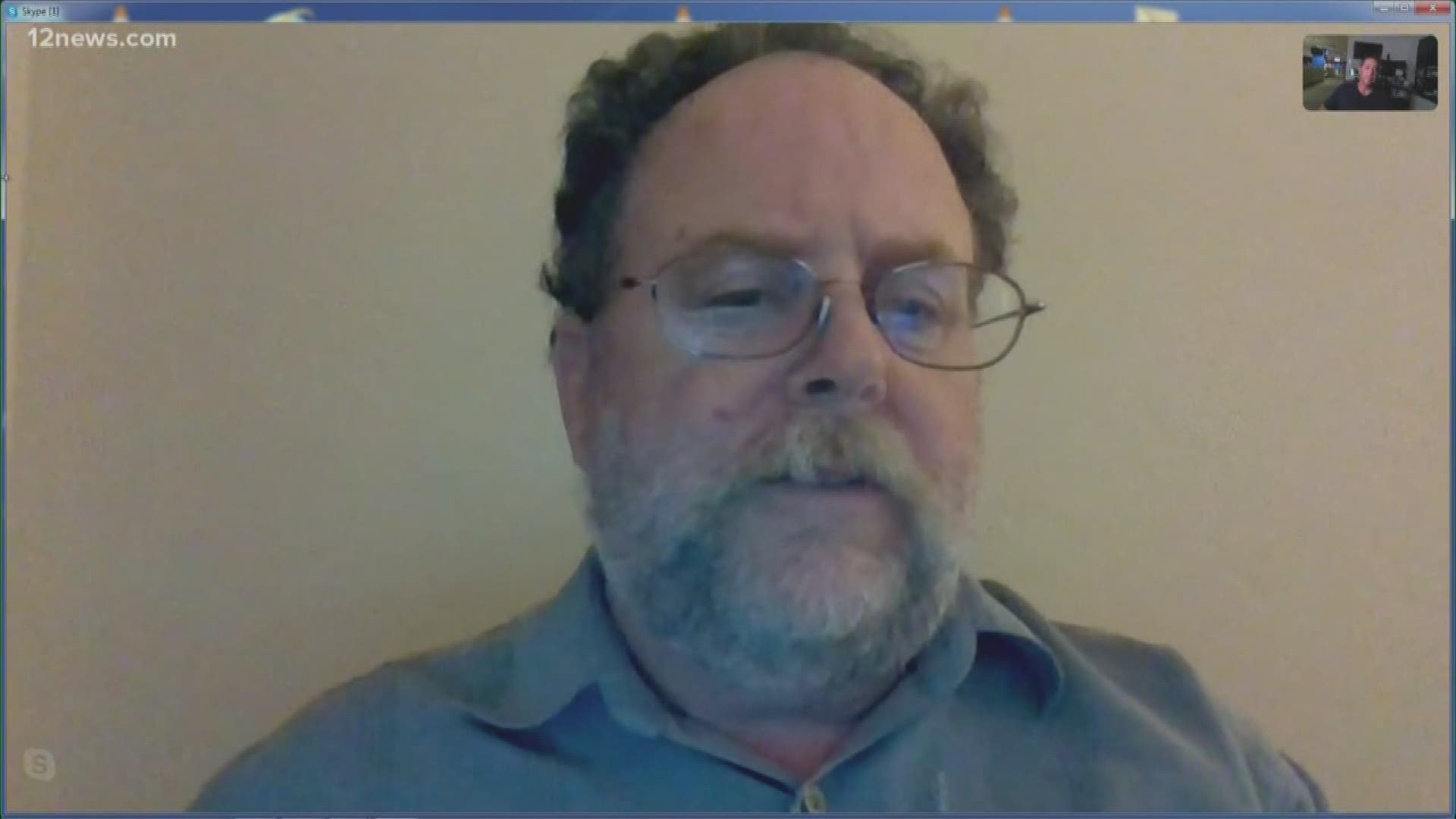After two earthquakes shook California on two straight days, with tremors felt in Arizona and Nevada, we are again wondering if a major earthquake could strike in Arizona and where.
There have been more than 3,500 seismic events in Arizona since 1852. A very small percentage of these events have actually been a detectable earthquake, let alone a major one.
The first earthquake that originated in southern California this week, on Thursday, was measured at a 6.4 magnitude. It was the largest shake in the state in 20 years.
On Friday, another quake was measured at a magnitude of 7.1.
Only once in recorded history has an earthquake hit Arizona with a magnitude of more than 7, according to the Arizona Geological Survey. It was in 1887, before Arizona was an official state, and is known as the "Sonoran Earthquake." It originated on the Pitaycachi fault near the Arizona-Mexico border, south of Douglas. It killed nearly 60 people and was measured at a 7.6 magnitude.
Three earthquakes in Flagstaff in 1906, 1908 and 1910 measured between 6.0-6.2 magnitude, but since then, Arizona hasn't had anything above a 6.0, according to the Arizona Geological Survey. The most recent
According to Dr. Michael Conway, a renowned research scientist on seismic activity at the University of Arizona, there are no major fault lines that run across the Phoenix metro area, but there are other faults in the state where a major earthquake could hit.
These include the Imperial Fault, located 50 miles west of Yuma, which could produce an earthquake up to a 7.0 magnitude in the next 40 years, which could hit Arizona hard.
The Little Chino and Big Chino Faults near Prescott have the capability of producing an earthquake in the 6.0 to 7.0 magnitude range.
The Lake Mary Fault, which runs from Mormon Lake to Flagstaff has the capability of rupturing and producing 7.0-magnitude earthquake as well.
Dr. Conway said it's unlikely Phoenix would ever experience a really strong earthquake, but the possibility is there for other areas of the state. However, predicting when and where is just about impossible.
"We can't predict earthquakes, but we can forecast them," Conway said. "Nobody can tell when the Imperial Fault in California is going to rupture, but they’ve done a lot of work, like trenching, so they can forecast and tell what the likelihood an event will happen."

